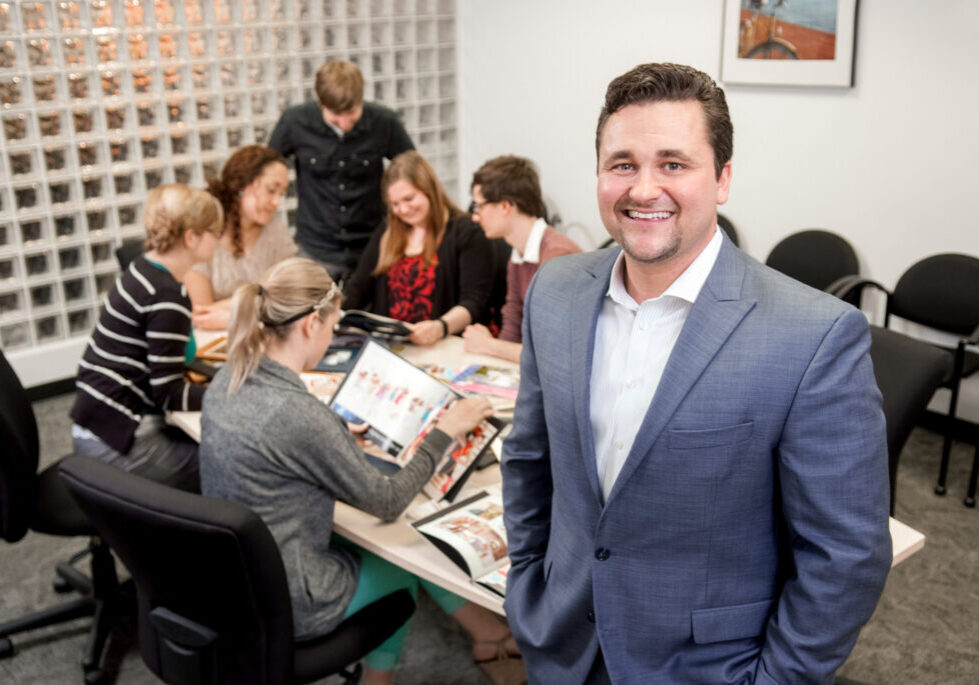The grassroots advocacy and engagement company was acquired by Washington, D.C., lobbying and technology firm FiscalNote, which has been on a purchasing spree as it seeks to expand its footprint in the government relationship management (GRM) sector.
VoterVoice carved out its niche helping organizations large and small implement proactive approaches to online governmental affairs. The company serves more than 1,100 clients, including associations, nonprofit organizations and corporations, helping 22 million people across the U.S. engage with public officials and government agencies.
“Joining forces with FiscalNote is a great opportunity for us to leverage the power of their industry leading GRM platform with our advocacy tools and best practices,” Fuller said in a statement announcing the acquisition.
‘A Better Way’
Fuller founded the company in 2000 when he was working as a lobbyist and compiling databases of political contacts with a simple spreadsheet. He would then contact each person via email, a cumbersome process.
“I knew it could be done in a better way,” he says. “I really felt there was an opening for it in the market.”
The software tool his company eventually developed helped organizations target the appropriate officials, inform their supporters on issues and craft personalized messages to legislators.
The business started out of the Student Incubator at LSU, where Fuller tapped several graduate students to help build the early product. A few years later the company became one of Louisiana Technology Park’s earliest members. “I thought it would be good to help attract employees and it turned out that was very helpful to us,” Fuller says of the Tech Park.
Fuller turned away outside investment and instead financed the business through his own funds and debt, including credit cards. “People were receptive to the product,” he says. “When they signed up they typically stuck around for many years, so it helped us build up a revenue base and get our footing.”
Fuller worked diligently to keep keep expenses low in those first years, which included a major roadblock with the Sept. 11, 2001, terrorist attacks, when the entire political industry essentially shut down for several months. Despite that rough period, Fuller says he never seriously considered walking away from VoterVoice.
“Once I was deep in debt I wasn’t going to get out of it,” he says. “The fear of failure and the fear of losing my house was enough. I wasn’t going to throw my hands up and walk away. It just wasn’t an option.”
Growth Period
The company continued to expand and evolve, but Fuller says the biggest change came with the decision to open an office in the Washington area in 2012, which prompted a period of significant growth.
“We did well before then, but things really took off, especially in the federal association market,” Fuller says.
Fuller says his approach to managing people has evolved considerably as well. “Just understanding once you get some good people, you let them do their thing and keep things on track but don’t micromanage too much,” he says. “At the beginning I didn’t have that option because most employees were young and inexperienced.”
It’s an approach that Fuller encourages young entrepreneurs to follow, particularly “building a good team as early as possible.”
“Work on building a solid team, whether that’s bringing on a partner or just paying more than you think you should be paying, or somebody with the skills you need,” he says. “We could have moved a lot faster if I had done that sooner.”
The Next Phase
Fuller says he has fielded multiple offers for the company over the years, including one particularly enticing proposal about five years ago that he ultimately turned down. FiscalNote’s interest was intriguing, he says, in part because it had ambitious plans for the product.
“I’m glad that we found each other because I do feel like they can take the business in a direction that I wasn’t really interested in taking it,” he says. “They can grow it in a way that I just didn’t have the stomach for. I think it’s good.”
FiscalNote says it will use VoterVoice to improve its productivity and efficiency and deliver one of the most effective grassroots solutions in the market.
“With the growing relevance of municipal and local governments, along with the changes in the global political landscape that are giving rise to new and evolving needs in political advocacy, adding the VoterVoice best-in-class advocacy suite to our FiscalNote GRM platform benefits our clients immediately,” FiscalNote co-founder and CEO Tim Hwang said in a statement.



